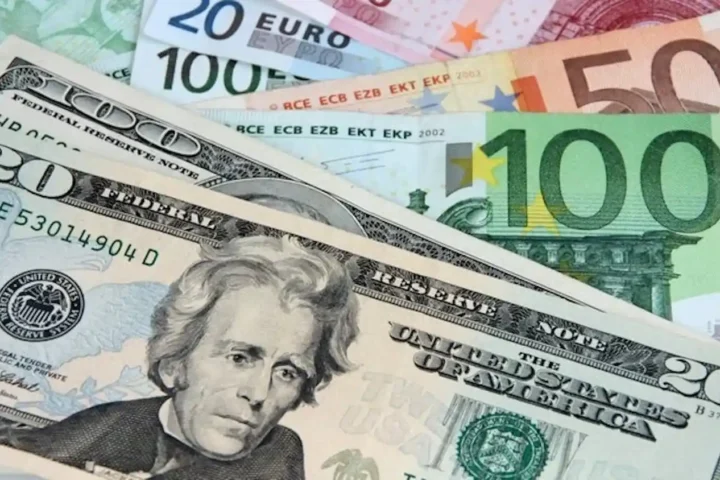In a stunning twist to France’s political future, far-right leader Marine Le Pen has been barred from running for office for five years, effectively ending her bid for the presidency in 2027. Once seen as the frontrunner to succeed President Emmanuel Macron, Le Pen now faces a legal and political firestorm after being convicted of embezzling European Union funds — a scandal that has sent shockwaves through French and European politics.
But how did one of France’s most prominent political figures end up banned from public life? Here’s a breakdown of what happened — and what it means.
What Was Marine Le Pen Convicted Of?
A Paris court found that Le Pen, along with her far-right National Rally (RN) party and more than 20 associates, misused over €4.1 million in EU funds between 2004 and 2016. The money, intended to support legitimate work by European parliamentary assistants, was instead used to pay RN party employees based in France — including Le Pen’s personal assistant and bodyguard.

According to the court, Le Pen’s actions constituted a “serious and lasting attack on the rules of democratic life.” The presiding judge, Bénédicte de Perthuis, noted that the misuse of public funds, particularly from the European Union, undermined both national and supranational democratic institutions.
What Are the Penalties?
Le Pen was handed a four-year prison sentence, with two years suspended, to be served under house arrest. In addition, she was fined €100,000 and — most significantly — banned from running for any political office for the next five years.
Her party, National Rally, was fined €2 million. The decision comes at a time when Le Pen was widely seen as the leading candidate for the 2027 presidential election — a race she had hoped to win after three failed attempts.
Le Pen plans to appeal the ruling, calling it a “political decision” and claiming that her rights under the European Convention on Human Rights were violated.
Why the Ban Now — And What Does It Mean?
The court’s decision to impose an immediate ban was not taken lightly. Judge de Perthuis highlighted the risk of “democratic public unrest” if someone convicted of embezzlement were to win high office, especially the presidency.

The ruling reflects an effort to uphold public trust in democratic institutions at a time of increasing political polarization in France. Yet, it also risks deepening divisions: Le Pen’s supporters and allies have decried the sentence as judicial overreach, if not outright persecution.
A Blow to French Democracy — Or a Win for Accountability?
The verdict has ignited fierce debate.
Jordan Bardella, Le Pen’s protégé and current president of National Rally, has launched a petition demanding the ruling be overturned. Framing it as a battle for French democracy, Bardella warned that it wasn’t just Le Pen being condemned — “it is French democracy that is being executed.”
Le Pen’s niece, Marion Maréchal, herself a Member of the European Parliament with a rival far-right group, echoed that sentiment. “Her only guilt,” she claimed, “was leading our side on the path to victory.”
Even international figures chimed in. Former U.S. President Donald Trump called the conviction a “very big deal,” likening Le Pen’s legal troubles to his own. Hungarian Prime Minister Viktor Orbán posted “Je suis Marine” on social media, while Italy’s Matteo Salvini criticized the decision outright. The Kremlin, too, accused Europe of “trampling on democratic norms.”
Legal Troubles Among France’s Political Class
Le Pen’s conviction adds to a growing list of French politicians facing legal fallout over financial misconduct. Former President Nicolas Sarkozy was convicted of corruption in 2021 and sentenced to house arrest, wearing an electronic bracelet instead of serving prison time.
While the French public has become increasingly disillusioned with political elites and corruption scandals, Le Pen had often presented herself as an anti-establishment alternative — making her conviction all the more politically charged.
What Happens Now?
Marine Le Pen’s legal team has vowed to appeal, but unless overturned, the ruling effectively ends her political ambitions through the next electoral cycle. With Macron constitutionally barred from seeking a third term, the 2027 election was seen as her best shot at finally claiming the presidency.
Her absence from the race is likely to trigger a scramble within the French far right. Bardella, now positioning himself as Le Pen’s political heir, could step into the vacuum — but whether he can command the same level of national support remains uncertain.
Meanwhile, the ruling is already reshaping France’s political landscape — raising urgent questions about the judiciary’s role in political life, the integrity of democratic processes, and the limits of public accountability in a deeply divided Republic.
The court’s decision to bar Marine Le Pen from running in 2027 may be grounded in law, but its reverberations are unmistakably political. As France heads into an uncertain future, the ruling will remain a lightning rod for both supporters and critics — not just of Le Pen, but of the system itself.











